A Master of Music at Age Sixty-Five
Brenda Yvette Twyner Thordarson ’19 MM returned to NEC after a 40-year absence and proudly completed her Master of Music degree.
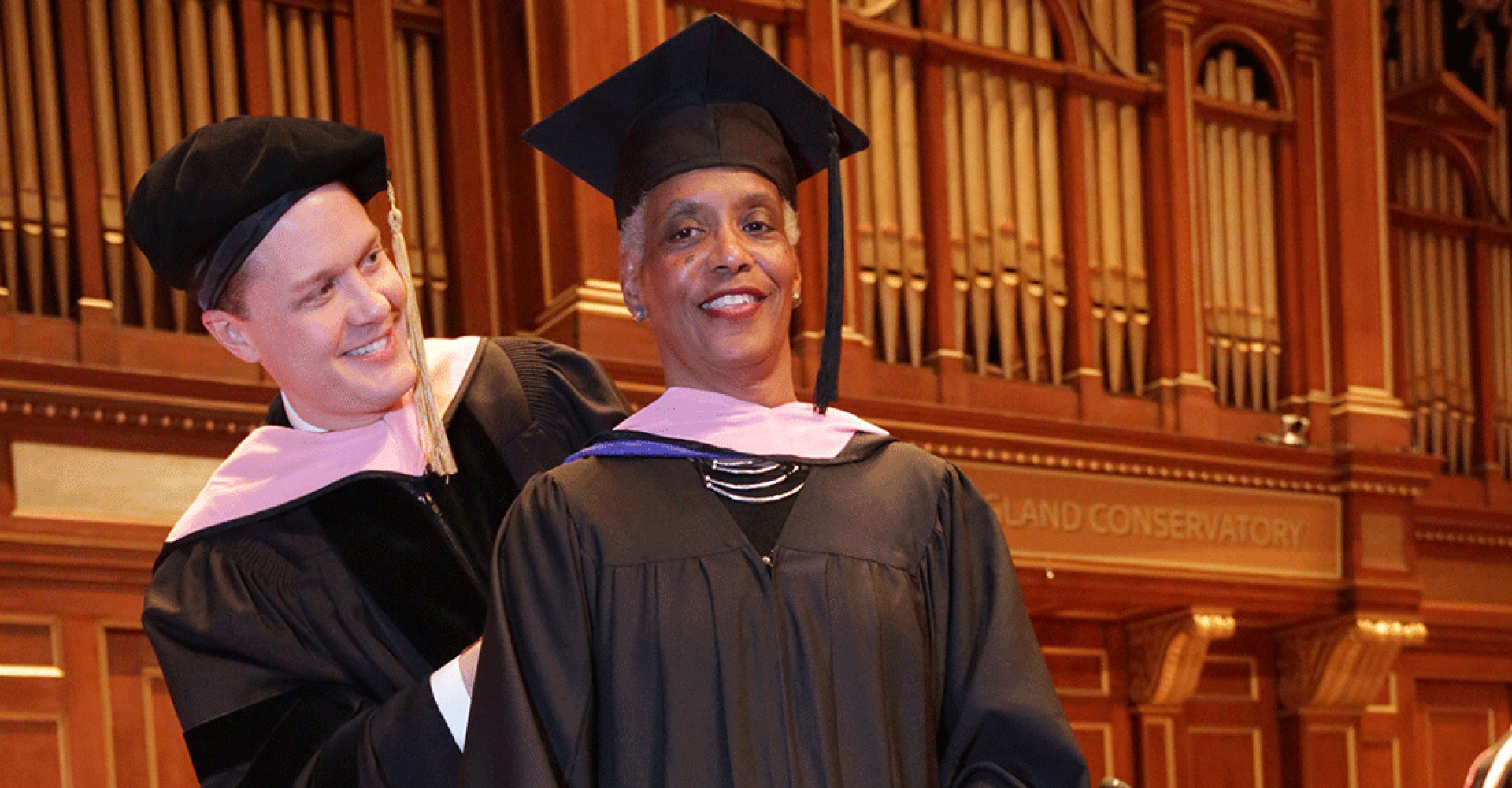
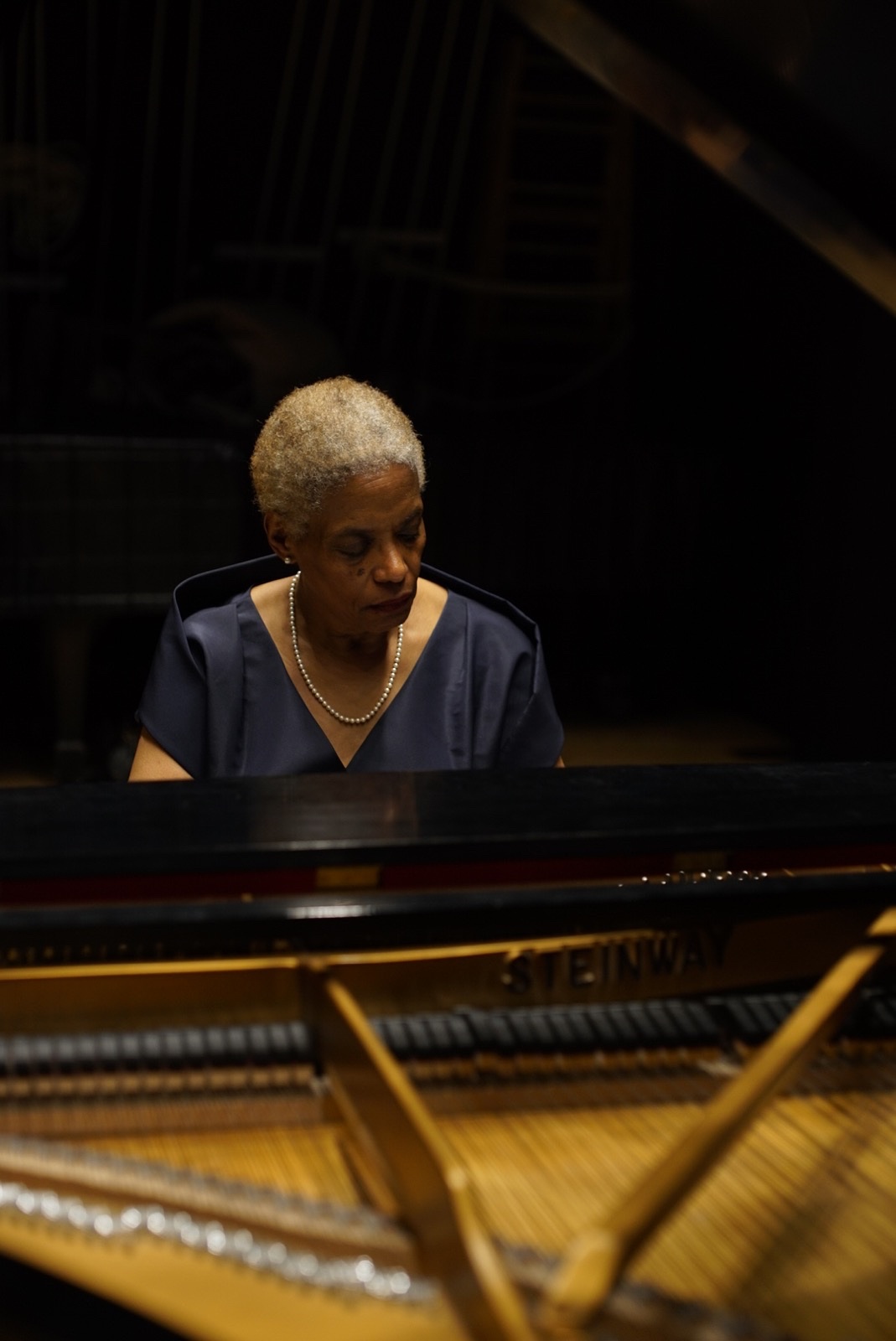
In many ways, Brenda Yvette Twyner Thordarson ’19 MM is just like any other graduate in the class of 2019: she beamed with pride as she received her degree, as her family cheered from the seats of Jordan Hall.
At age 65, however, Thordarson is a little older than the rest of this year’s graduates, with most of her classmates closer in age to her children.
Thordarson began her Master of Music degree in 1975, but was unable to complete her two final requirements—a thesis and a final recital. With the encouragement of friends, staff, and faculty, she returned this year and proudly graduated with the class of 2019.
“I always planned on finishing,” she shares. “In the end it took quite a bit longer than I had expected. Forty years is a long time! Iʼm so glad Iʼm still breathing!”
What brought you to NEC the first time around?
I wanted to be a concert pianist. My pattern for success came from my home in Laurel, Mississippi—one of my motherʼs schoolmates was Leontyne Price. I knew that her career did not take off until graduate school.
When I arrived on campus for my audition, I was fresh with triumph, having won second prize in my state piano competition, and so I had my chest high and my hopes up. When I was accepted but with the provision that I dedicate an additional year to the two-year program for the Master of Music Degree, I was a bit less triumphant but nevertheless, hopeful.
When I began to walk the 3rd floor halls looking for a practice room, my spirits plummeted. The magnificent sounds of Christopher OʼRiley, Randall Hodgkinson and others planted seeds of doubt deep in my soul and I began to wonder why I was even here!
When I had so much difficulty finding a subject for my thesis, a requirement at the time, I was so dejected that everything was difficult, and I felt that my prospects for finishing were doomed.
When I left, I had finished by coursework, but not the recital and also the thesis which would require either a paper or a lecture recital. I always planned on finishing, and in fact I investigated twice before, deciding not to at the time because I didnʼt want to risk harming my family life.
What brought you back to finish your degree this year?
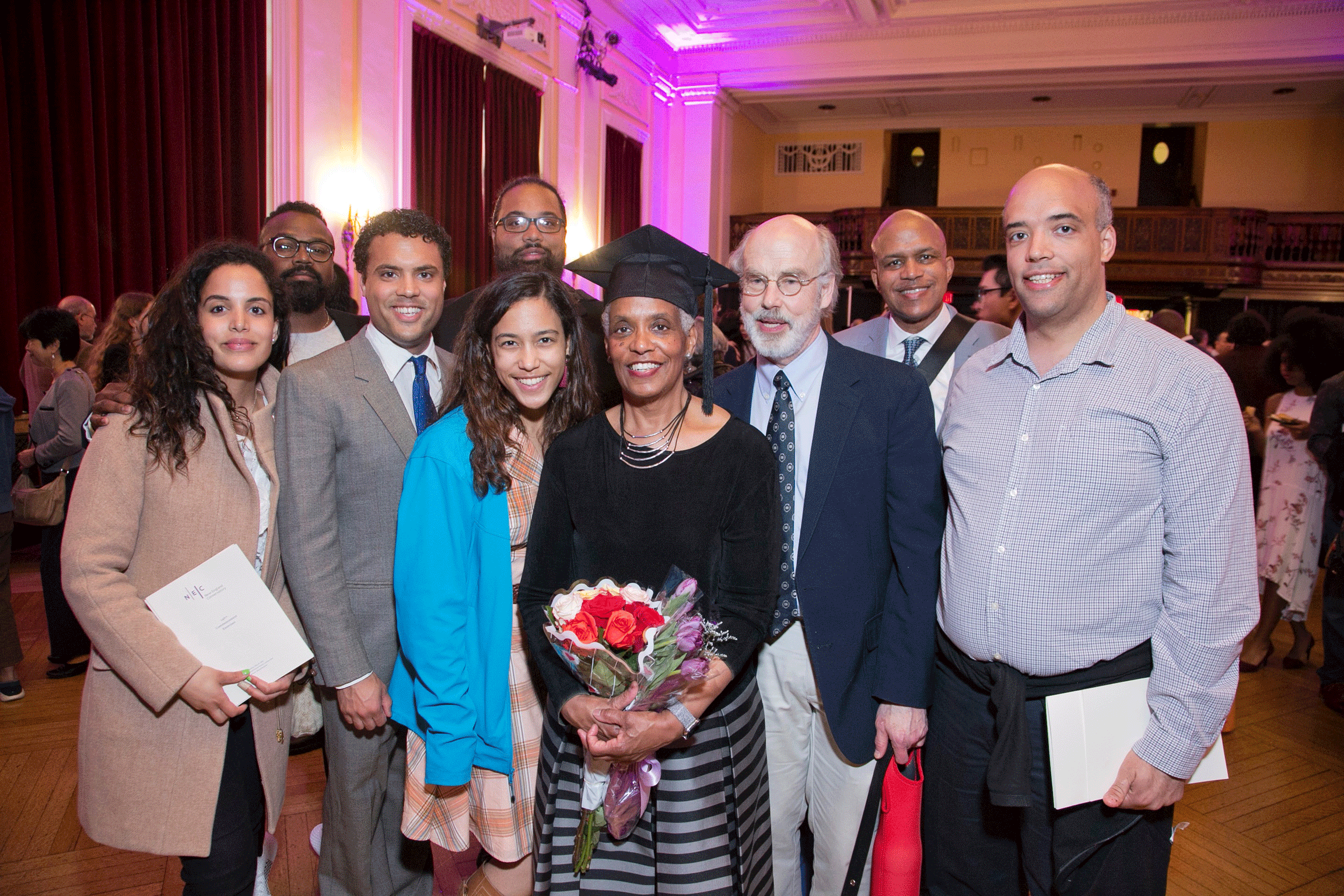
When I was a student in the 1970’s, a family near the Pine Manor Campus welcomed me into their home. A few years ago, I was visiting with that family, and when I mentioned that I in fact had never finished my degree, they encouraged me to consider finishing!
I was doubtful it could be done, having not practiced seriously for decades. I was intrigued, however, and so I took several weeks to try to rework a piece of music to test if I might possibly succeed. When I was successful, I presented myself to Dean Novak to inquire about finishing. Since I have gone above and beyond in coursework and only lacked the thesis and the recital, I was given the go ahead to finish those two items.
Since the thesis was ultimately the thing that had stopped me in my tracks decades ago, I saw it as a serious obstacle. Professor Bert Van Herck allowed me to audit his class for incoming graduate students needing assistance in passing the required music theory exam. I audited the class twice! In the end, he was so helpful and generously became my advisor and accompanied me last spring when I presented a rather long paper and a lecture recital.
What obstacles did you encounter along the way? How did you overcome them?
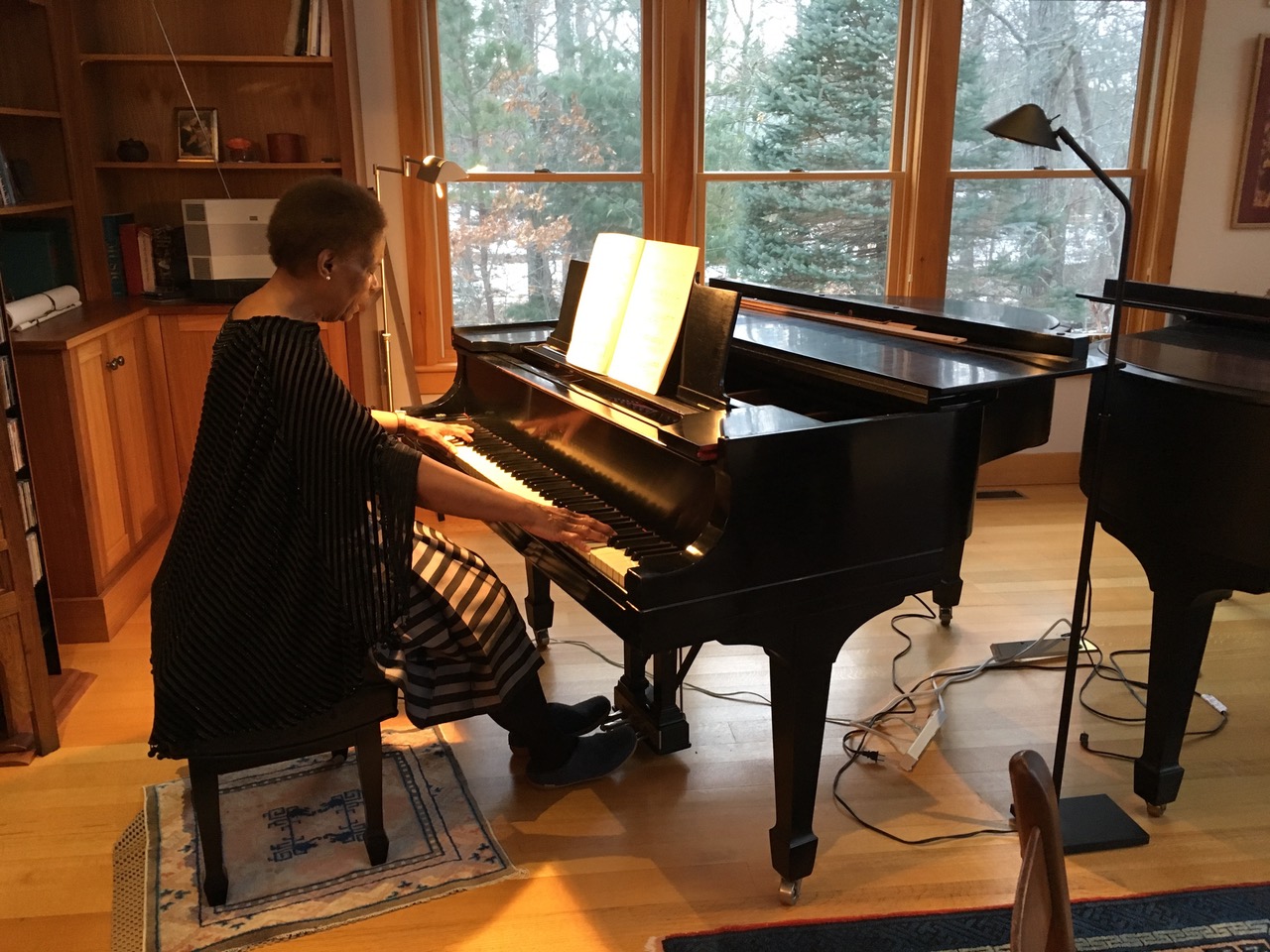
When I began to practice after so many decades off, even thirty minutes each day caused injury. I seriously had my doubts until I found the Performing Arts Clinic at the Brigham and Womenʼs Hospital.
Once my inflammation had died down, I was allowed to begin practicing again for two minutes only on the first day back. Each day I added an addition two minutes until I could practice enough to be able to prepare for a recital. This took a very long time.
Sometimes I had to back track, taking a few days or weeks off here and there. I did not arrive at what I consider to be an adequate practice schedule until this past January!
By January, things did not look good, in fact, I did not think I would be able to pull it off this year. Thatʼs when my wonderful husband stepped in and created what I call my own private “artist colony.” He found a home for me, away from the need to do anything except take care of my basic needs and practice! I was there for three months learning my recital pieces.
Now I practice as much as I want in a given day, but in 24-minute increments with six minutes off, and a bit more time for meals and other breaks. I try to put in a full 40 hour week.
How has music made your life richer in the years between starting and finishing your degree?
Since music is a part of my very fabric, without music there would be no me!
My musical education has enabled me to enrich the lives of those around me, thereby enriching my life—playing the piano at events, Christmas party sing alongs, organizing music events during summers for children and finally, helping my son, who majored in voice in college.
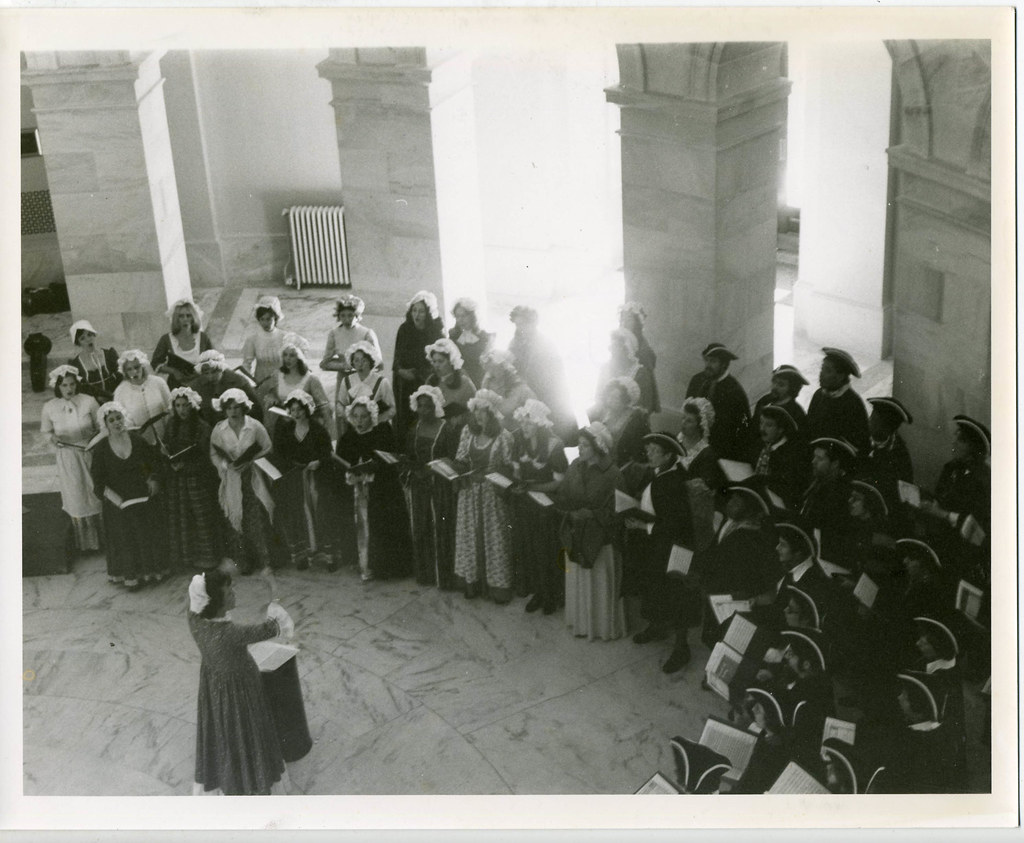
Since my serious practice ceased when I left the Conservatory, I did not perform. Occasionally I might have been persuaded to perform a very easy piece. The life I lived and lessons I learned in the interim, however, enabled be to become a much better musician. Attention to detail, for example, is one trait that I came to appreciate more and to practice. This is very important if one is to follow a score written by a composer long dead and hope to transmit the music he represents with that score.
Music always came from my body, however, in the form of singing. This never went dormant. I studied voice in my undergraduate years as well as piano and joined the choruses both at Millsaps College and at NEC. At NEC, I was in the Concert Choir during my first year. This was quite an experience. It allowed me to perform in Washington, D.C. at the lighting of the National Christmas Tree during the Bicentennial celebrations of our country, as well as the Symphony and Carnegie Hall. I learned important lessons both for music and life from both Lorna “Cookie” DeVaron and Seiji Ozawa.
Most of my life had been lived on “one side of the tracks” in a segregated environment with people who look like me and lived like me. At NEC, I found that I was exposed to peoples and ideas that I had not encountered down in Mississippi. Simply coming here, I “rubbed shoulders” with others who were from different cultures. I joined the Chorus and Concert Choirs which provided even more exposure. I remember for example, singing a Latin portion of a Catholic mass setting. I commented that I wasnʼt even Catholic. When the young lady directly in front of me turned and said, “I know what you mean—Iʼm Jewish!”
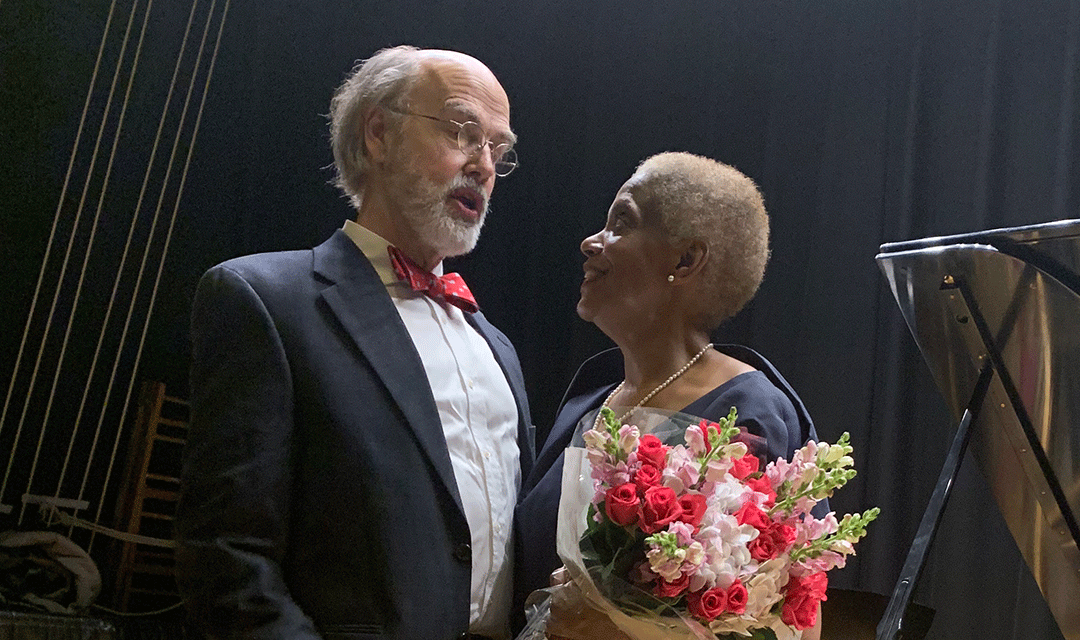
How did you feel leading up to your final recital?
Before the recital, I was very anxious, especially leading up to the pre-recital! I had not been playing for audiences for decades and I so wanted to achieve this recital in order to honor all of those who had made this possible for me now and over the years. I did not want to fail.
Leading up to the recital I was a bit less nervous but I still had to deal with adrenaline and was not used to it. I was encouraged by the positive comments of the faculty. Also, I had read a wonderful article from Lawrence Lesser and I wanted to create something beautiful for my audience.
What have you learned from your experience completing your recital and you degree?
First of all, I was very cognizant of the fact that we are all a product of the efforts of so many people in our lives, I think it is important to be grateful and to express that gratitude.
Second, I think it is important to remember that even though it would be thrilling if we could always present a near flawless performance after so many hours of preparation, the deepest joy comes with the generosity of giving.
Finally, my fondest wish is for all musicians to realize that the part we play in the world is so important. I firmly believe that beauty is not optional. For human beings to flourish, it is essential. We have but to look around us to see that beauty as seen with the eyes is everywhere.
Through our ears, it often comes through music. Therefore, I would like to remind everyone of the question asked by our new president Andrea Kalyn at her installation: “What have you done today for the world through music?”
I firmly believe that beauty is not optional. For human beings to flourish, it is essential.
